Introduction to the species and characteristics of Yunnan small-grain coffee beans the ranking of Yunnan coffee producing area and the description of its flavor and taste
When it comes to coffee cultivation, you may immediately think of famous coffee producing areas such as Africa, Central and South America. In fact, Yunnan Province of China recorded growing coffee as early as 1904, and now it is among the world coffee production rankings. "Yunnan small grains" appears more and more frequently in domestic coffee shops, and there are many kinds of high-quality coffee from Yunnan in the hand-made items in Qianjie.
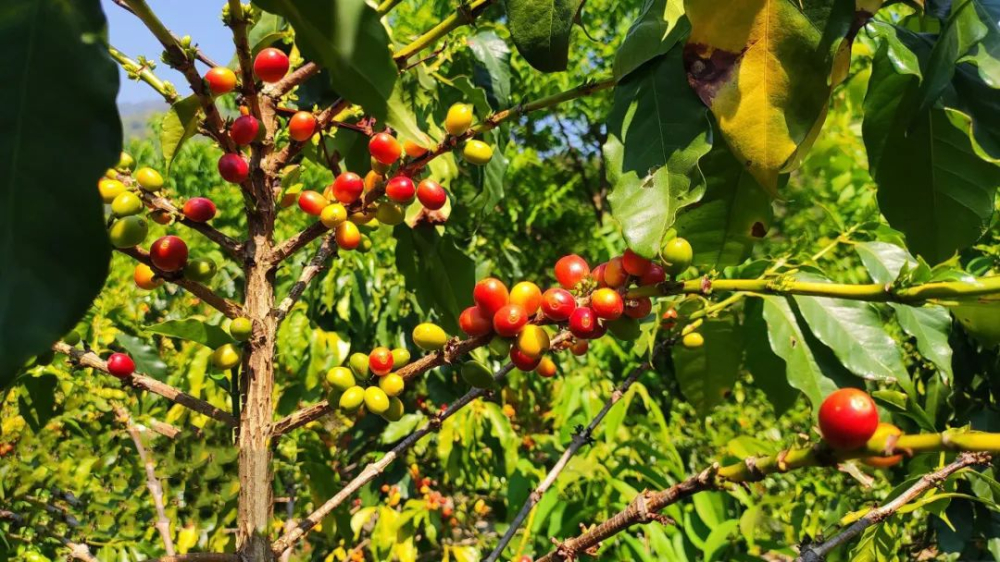
What is the so-called "small grain coffee"?
"small grain" refers to the smaller Arabica variety of coffee, in contrast to Hainan's medium-grain robusta coffee beans. Yunnan originally introduced two pure Arabica species, the iron pickup and the bourbon, and the ancient iron pickup is recognized as a high-quality variety. The famous Jamaican Blue Mountain Coffee is a kind of tin card, with rich aroma, delicate and diverse flavor, but the yield is very low, and it is vulnerable to rust, so more manpower management is needed. After all, coffee is a crop used by Yunnan farmers to make a living, if the yield is too low to meet the income, it is difficult to maintain planting, so Yunnan farmers mostly choose to plant more high-yielding varieties.
In the 1970s and 1980s, the global coffee industry suffered from leaf rust. Coffee trees infected with leaf rust are like getting cancer, resulting in large-scale death of coffee trees, so the planting area has been greatly reduced. In the 1980s of reform and opening up, Yunnan coffee began to gradually enter the international market. In 1988, Nestl é and other foreign-funded enterprises set up branches in China, supporting the development of Yunnan coffee industry in many ways. It not only introduced high-yield and disease-resistant varieties such as Katim, but also promised to buy Yunnan coffee beans at the American futures price at that time as raw materials. These measures not only further expand the planting area of coffee in Yunnan, but also increase the enthusiasm of coffee farmers. At the same time, it has also established the Katim variety to replace the ancient tree species iron pickup, and become the main variety of coffee in Yunnan.
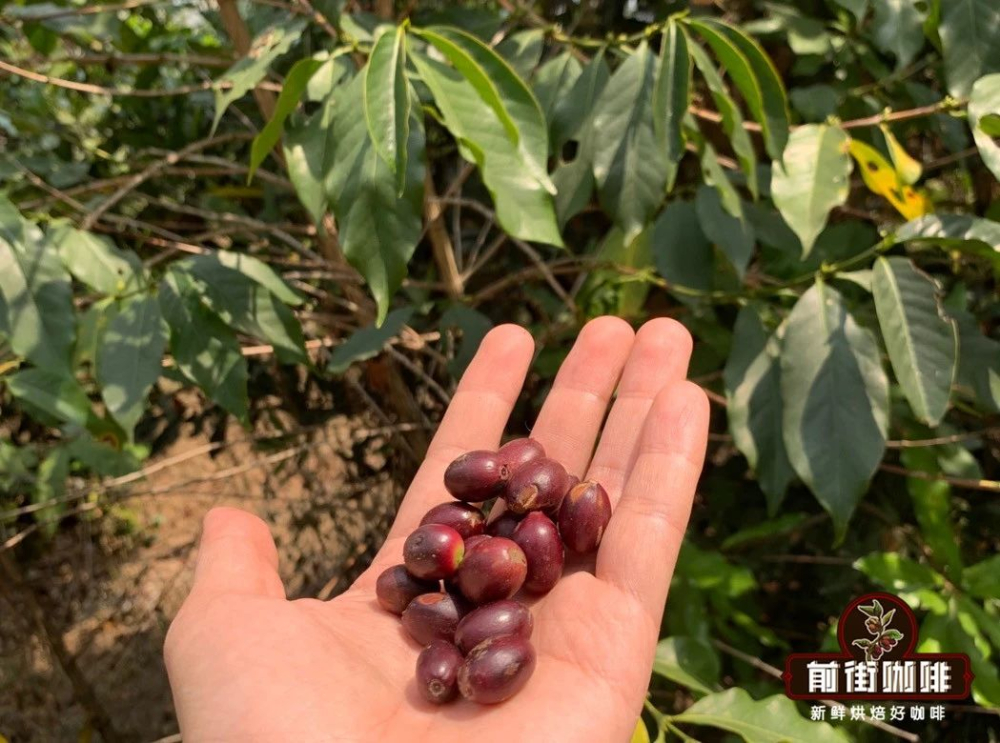
Although Katim is classified as an Arabica species, Katim carries 25% of the Robusta gene genetically. Luobusta itself contains high chlorogenic acid, which is not easy to be affected by insect pests and climate. It is generally planted in a low altitude environment, with high yield and fast fruit ripening. On the other hand, the "picky" Arabica species have weak disease resistance and relatively low yield per plant, and a significant temperature difference between day and night is formed in the high altitude environment, which delays the ripening period of coffee fruit and enables coffee cherries to absorb more nutrients and form a richer aroma. The microclimate of each coffee producing area provides a variety of growth conditions for Arabica, forming a unique flavor and taste.
Katim inherited the characteristics of Robusta, with strong disease resistance and high yield characteristics, coffee beans will be rich in oil after roasting, but also with the "devil flavor" of Luodou. The flavor performance in the cup test is often not as good as that of pure Arabica varieties at the same altitude, such as Kaddura. In addition, Katim's rust resistance will gradually lose after 20 to 30 years. If Yunnan wants to improve the overall quality of coffee, it needs to be changed gradually. In recent years, many new varieties have appeared in Yunnan one after another, such as the world-famous Rose Summer. It is believed that in a few years, we will see more high-quality coffee varieties produced from Yunnan.
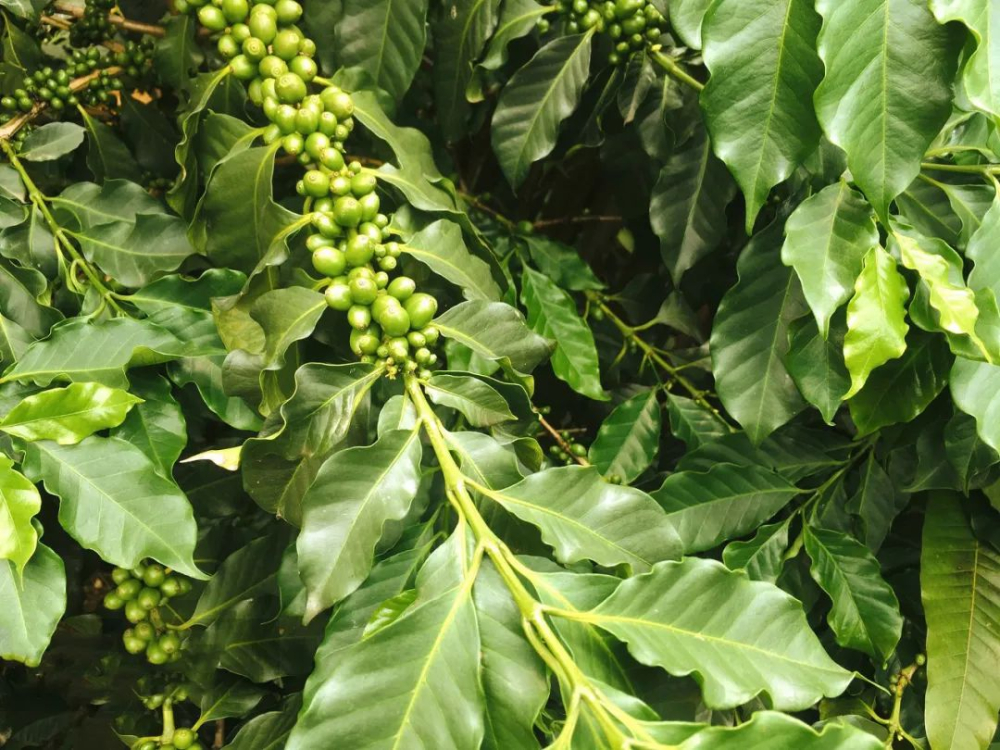
Are there any other varieties grown in Yunnan besides Katim? At present, 99 per cent of Yunnan's coffee production comes from Katim, while the remaining 1 per cent is produced by iron pickup, bourbon and small batches of Rosa, Kaddura and Yega Sheffield native varieties. For example, Qianjie planted iron pickup coffee in Lincang, Yunnan Province as early as 2013, but agriculture is a very long cycle, until the first batch of coffee beans were produced in Qianjie in 2020, the output was only 200 kilograms.
At present, coffee in Yunnan Province has been planted in 35 counties in 9 cities, including Pu'er City, Baoshan City, Dehong Prefecture, Lincang City, Wenshan Prefecture and Xishuangbanna. Yunnan coffee on Qianjie bean list is selected from Baoshan and Lincang producing areas.
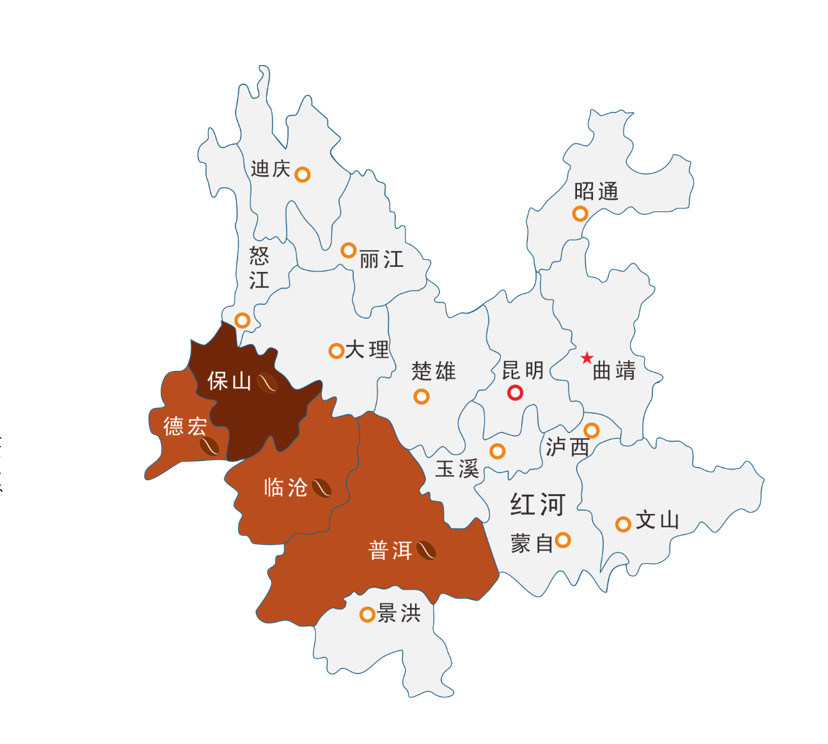
In the early years, in the process of exploring the knowledge of coffee, Jie came up with the idea of growing his own coffee, so he went to Lincang, Yunnan Province in 2013 to open a chapter in planting coffee trees. From the site selection, seed selection, seedling breeding, planting, harvesting, treatment and baking are all from the hands of Qianjie, but also summed up a lot of varieties, altitude, treatment related experience and knowledge.
Lincang, Yunnan is affected by the warm and humid air flow in the Indian Ocean and the southwest monsoon, the distinction between the four seasons is not obvious, but the dry and rainy season is distinct, Rain Water is more, the sunshine is long, the frost period is short, some areas are frost-free all the year round, and the three-dimensional climate is obvious, which is very suitable for the cultivation of Arabica coffee. The place selected in front of the street is located in the mountain forest at the junction of China and Myanmar, where it is above 1300m above sea level and retains the appearance of a semi-primitive forest, which is very suitable for coffee tree growth.
Qianjie chose the variety of iron pickup to plant. Iron pickup has an elegant and pure flavor, but it is also known for its low yield and poor resistance, so Qianjie has made a lot of efforts in planting management. After 5 or 6 years of cultivation, the first batch of results were finally harvested in the street before 2013, and produced in the way of sun treatment, also named "Qianjie 2020".
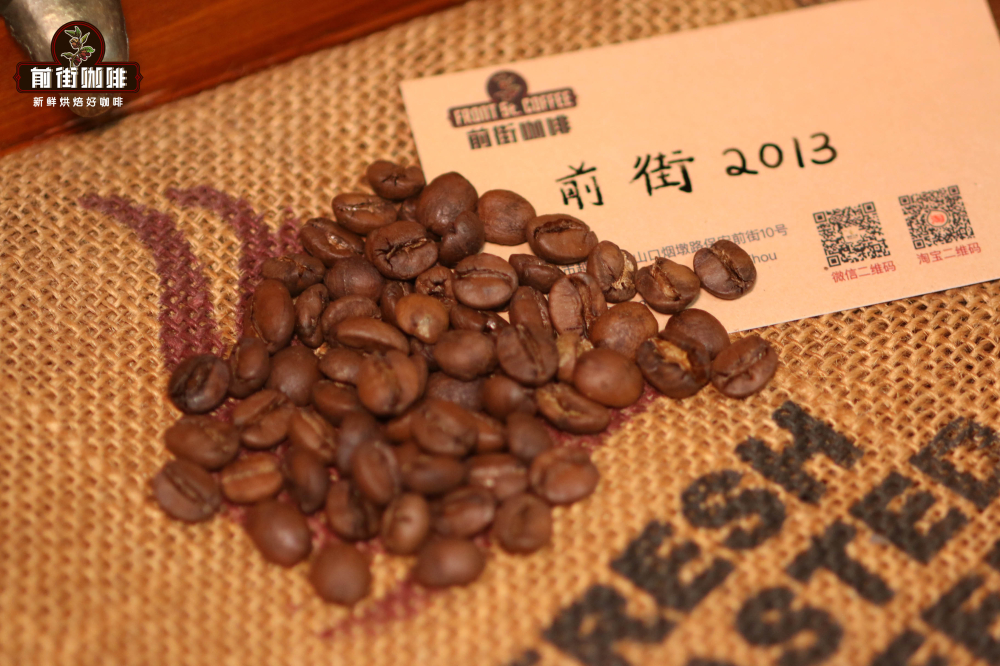
The frost-free warm climate of Baoshan is very suitable for the growth of small-grain coffee, especially in the unique dry-hot valley around Lujiangba, but the temperature difference between day and night is large, which creates the unique return of Baoshan small-grain coffee. in addition, it has a reasonable low rainfall, which brings great advantages to coffee production. Baoshan is a large and early coffee producing area in Yunnan. Compared with other producing areas such as Pu'er and Menglian, the biggest climate feature of Baoshan is relatively less precipitation and higher elevation, so most of Baoshan producing areas have less fruit and flesh of coffee beans. but high sweetness. So Qianjie started Baoshan granule as the facade representative of Yunnan coffee, giving everyone a taste of domestic coffee.
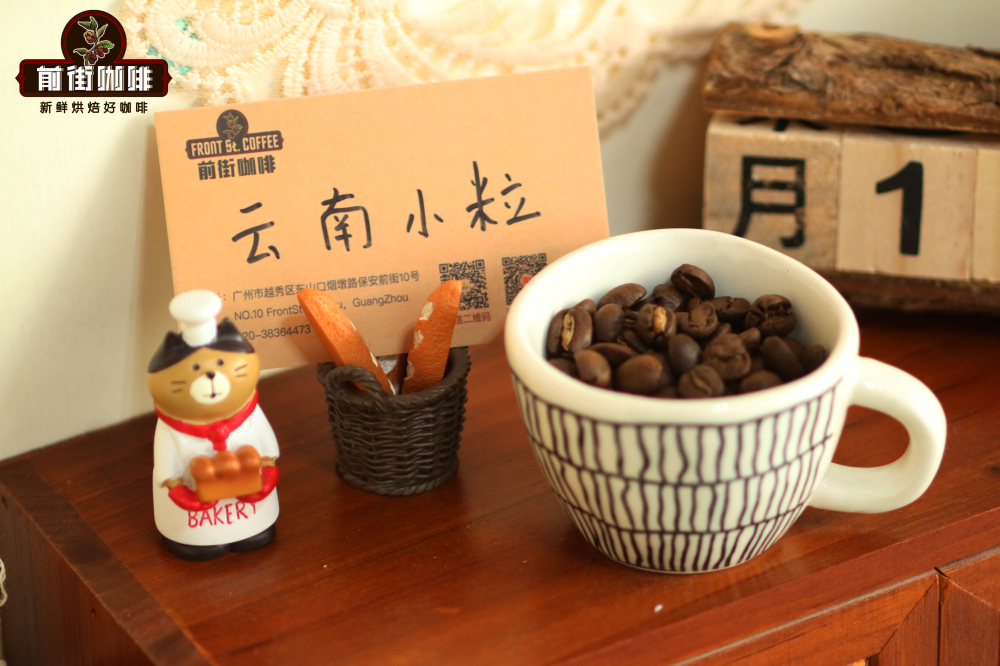
What's the flavor of Yunnan small-grain coffee?
As the harvest season of coffee in Yunnan is usually in the rainy season, it can not be widely used for three or four weeks of sun drying. Yunnan coffee farmers take measures to local conditions, based on high temperature and rainy climate conditions, mostly use water to deal with raw coffee beans.
The peel and pulp of the picked coffee fruit are removed by a practical machine, the peeled coffee beans are put into a fermentation tank for fermentation, the pectin layer is decomposed by fermentation, and the fermented coffee beans are washed repeatedly with clean water to remove the decomposed pectin. Finally, the coffee beans are dried for 1 week or 2 weeks. Finally, the dried coffee beans can be stored and waiting to be shipped everywhere. The washed coffee has the characteristics of cleanliness, stability, low defect rate and higher acidity, which better presents the flavor of the coffee itself.
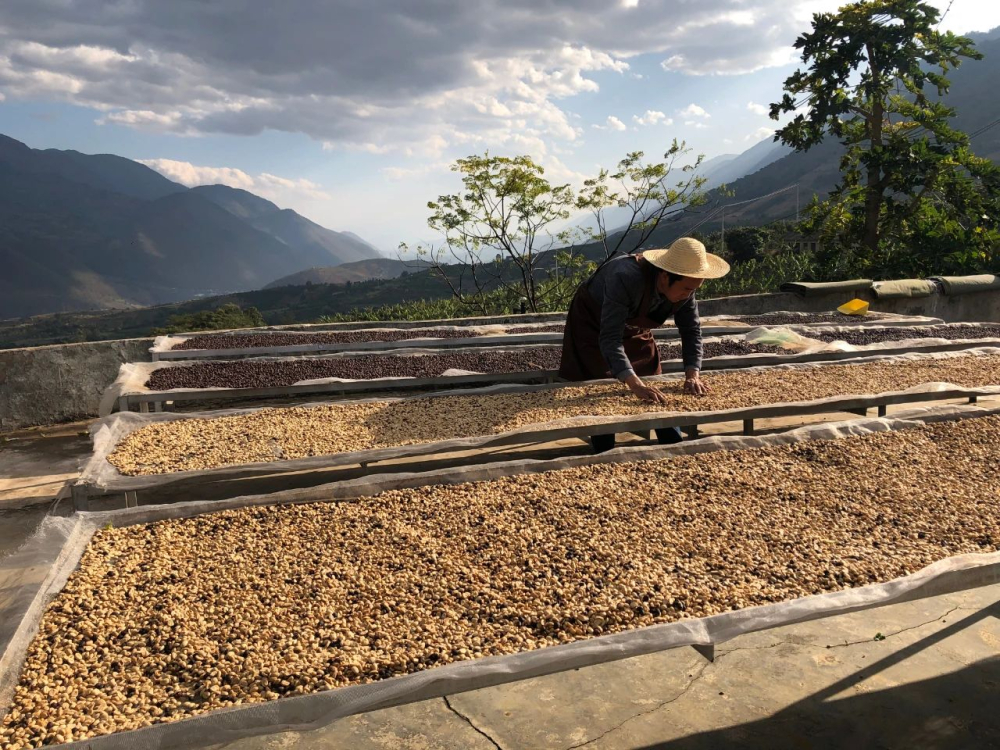
In addition to washing, of course, many Yunnan coffee will also use natural drying sun treatment, Qianjie home-grown iron pickup coffee is sun treatment. Whenever November comes, the coffee fruits planted in Qianjie also ripen one after another, and Qianjie will arrange for workers to pick red coffee cherries one by one. Since the maturity of coffee fruit is sometimes indistinguishable to the naked eye, it is necessary to put it into a tank for flotation before drying (floating on the water for undermature fruit, which needs to be removed), and the selected fresh coffee fruit will be dried in the sun. Until the coffee beans are dehydrated to purplish red and reach the target moisture content, they are sent to be shelled and baked.
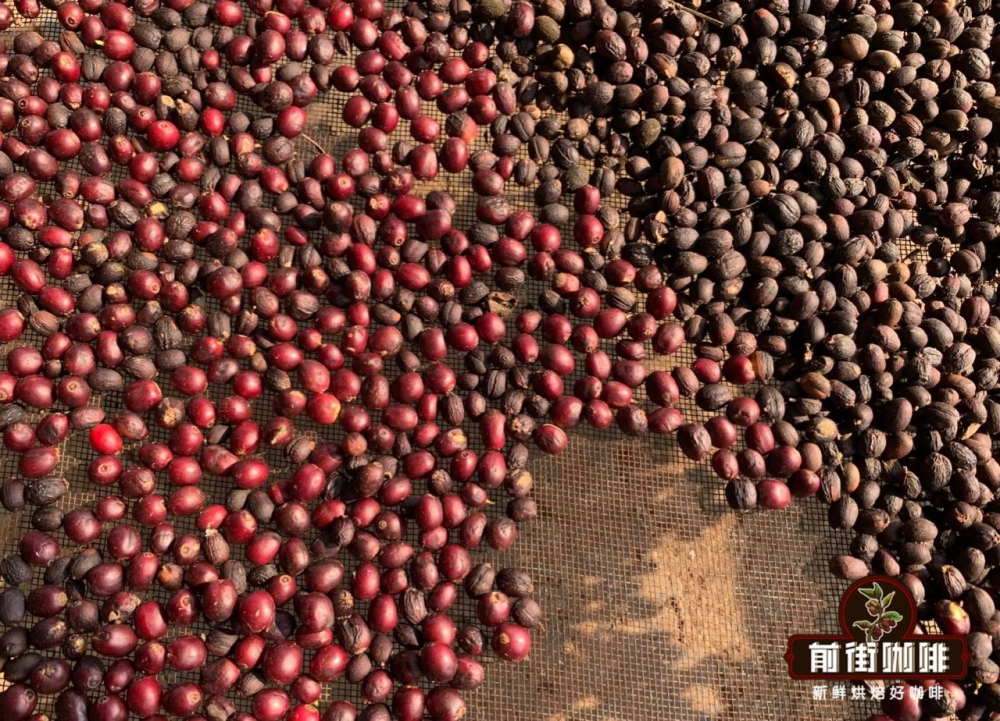
The baking concept of Qianjie is to present the flavor of the region while retaining more of the aroma of the coffee itself. For example, African coffee uses light roasting to show flower aroma and fruit acidity, while Brazilian coffee uses medium and deep roasting to highlight chocolate and nuts. Qianjie tested a variety of Yunnan coffee beans after roasting, and found that Yunnan coffee has a balanced soft taste, suitable for moderate roasting to highlight chocolate and nut aromas, while retaining part of the fruit acidity. The baking concept of Qianjie is to present the flavor of the producing area while retaining more of the aroma of the coffee itself.
Through cup test and comparison, it is found that the washed Yunnan Baoshan small coffee beans in Qianjie have the aromas of chocolate, nuts, plums and brown sugar, and the overall taste is neutral; the Yunnan iron pickup in the sun shows more fruity aromas and is more full of sweetness. the finish of fermented black tea.
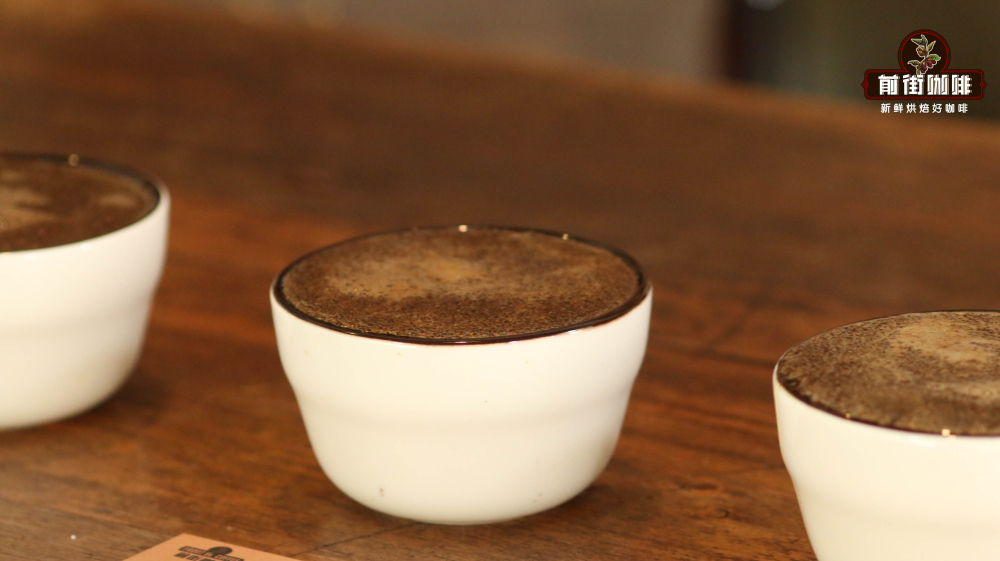
Qianjie Yunnan small grain coffee hand-flushing parameters
For cooking, freshly roasted coffee beans are recommended in front of the street. Since coffee beans enter the best taste period 4-7 days after roasting, after this time (about a month and a half after roasting) the aroma of the coffee may have been lost and some wood flavor has been formed. In order to avoid this situation, Qianjie has been mentioned in many articles. The most important thing is that Qianjie only delivers freshly roasted coffee beans within 5 days, so that people can taste coffee with good flavor.
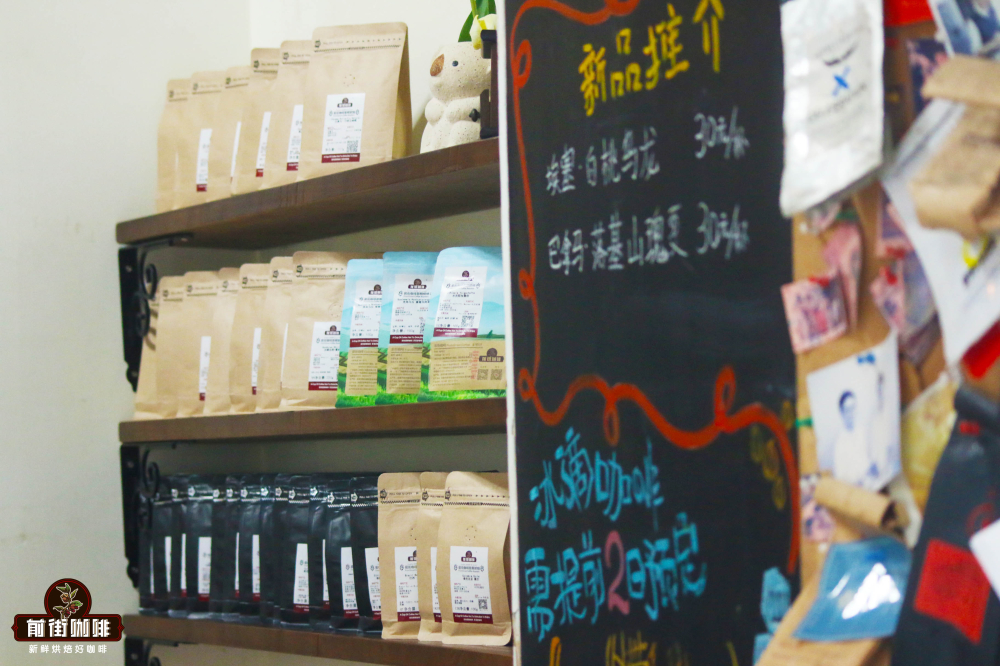
Considering that Yunnan small-grain coffee tends to have a balanced taste, that is, do not have too much acidity and heavy bitterness. Because previously, the street will use V60 filter cup, with medium grinding degree and medium water temperature for extraction.
Cooking parameters:
Filter cup: hario v60
Powder content: 15g
Degree of grinding: pass rate of No. 20 screen 75%
Gouache ratio: 1:15
Three-stage water injection: wet the powder bed with twice as much water as coffee powder to form a drum and steam for 30s, then fill the small water from the inside to the outer circle to 125g, wait for the powder bed to drop to half of the filter cup, and continue to inject the same fine water into the third section to 225g, until all the coffee liquid has been filtered and remove the filter cup for about 2 minutes.
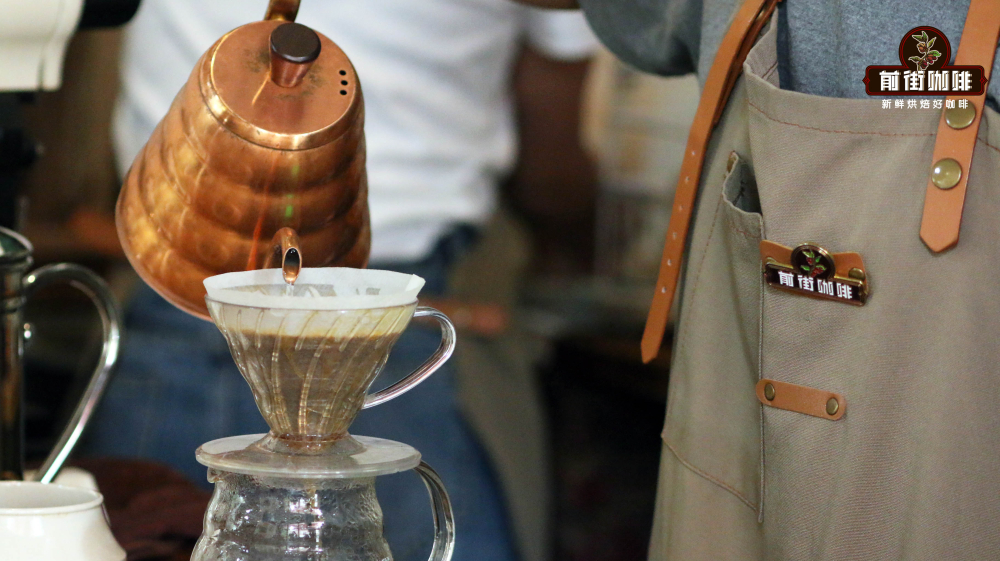
Professional coffee knowledge exchange more coffee bean information please follow the coffee workshop (Wechat official account cafe_style)
For more boutique coffee beans, please add private Qianjie coffee on Wechat. WeChat account: qjcoffeex
Important Notice :
前街咖啡 FrontStreet Coffee has moved to new addredd:
FrontStreet Coffee Address: 315,Donghua East Road,GuangZhou
Tel:020 38364473
- Prev

Catimor Katim (Katim)
Catimor: an important variety of commercial beans at present. East Timor was colonized by Portugal for 400 years, and the Portuguese had long been in contact with East Timorese coffee trees. In 1959, the Portuguese moved the Brazilian bourbon mutant Kadura to East Timor and interbred with Tim, who was of Robusta origin, and succeeded in breeding Kadim with strong disease resistance and super production capacity. Nineteen seven ○ to nineteen
- Next

Arabica Coffee Coffee Arabica
Many people have seen roasted coffee beans, but unless you have lived or traveled to coffee producing areas, you may not know coffee trees. The saplings are short-trimmed, but when they mature, they are 30 feet tall and covered with waxy leaves that grow symmetrically in dark green. The coffee fruit grows along the branches. After the white flowers are in full bloom and pollinated, the fruit takes a year to ripen. Fruiting is a continuous cycle, so flowers
Related
- Guji coffee producing area of Guji, Ethiopia: Humbela, Shakiso, Wulaga
- What is the most expensive variety of Qiloso in BOP multi-variety group?
- How to store the coffee beans bought home?
- Why are Yemeni coffee beans so rare now?
- Ethiopian Sidamo all Red Fruit Sun Sun Santa Vini Coffee beans
- SOE is mostly sour? What does it mean? Is it a single bean? what's the difference between it and Italian blending?
- Is Italian coffee beans suitable for making hand-brewed coffee?
- How to choose coffee beans when making cold coffee? What kind of coffee beans are suitable for making cold coffee?
- Just entered the pit to make coffee, what kind of coffee beans should be chosen?
- Can only Japan buy real Blue Mountain Coffee? What are authentic Jamaican Blue Mountain coffee beans?

